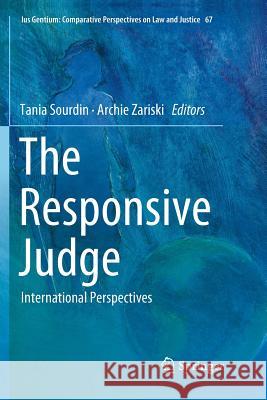The Responsive Judge: International Perspectives » książka
topmenu
The Responsive Judge: International Perspectives
ISBN-13: 9789811345500 / Angielski / Miękka / 2019 / 339 str.
Kategorie:
Kategorie BISAC:
Wydawca:
Springer
Seria wydawnicza:
Język:
Angielski
ISBN-13:
9789811345500
Rok wydania:
2019
Wydanie:
Softcover Repri
Numer serii:
000354656
Ilość stron:
339
Waga:
0.50 kg
Wymiary:
23.39 x 15.6 x 1.88
Oprawa:
Miękka
Wolumenów:
01
Dodatkowe informacje:
Wydanie ilustrowane











